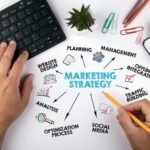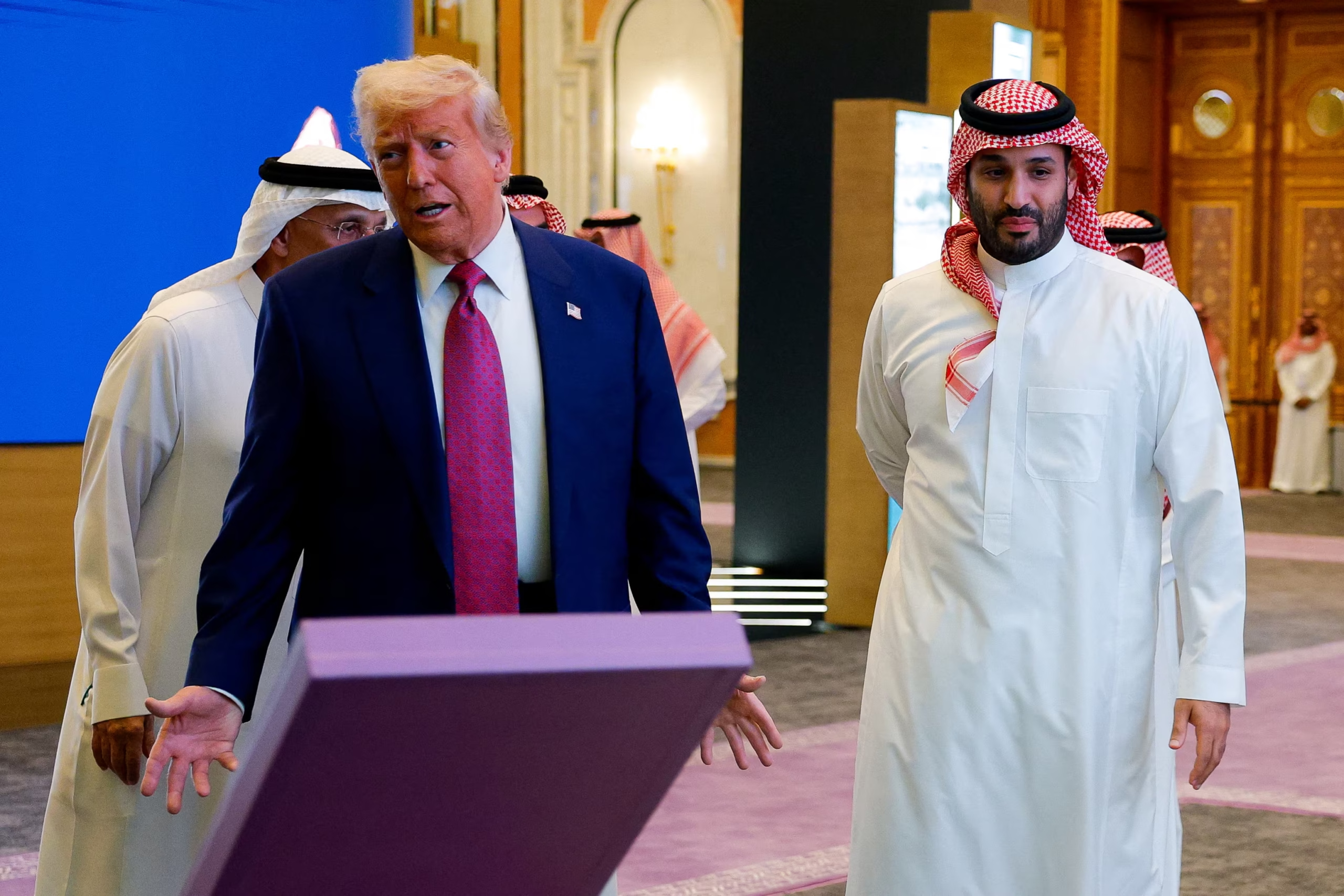Yesterday on 13 May 2025 at Riyadh, President Trump, addressing a packed audience of business leaders and Saudi royalty, hailed the forum as a testament to the “hottest economies” of the United States and Saudi Arabia. “We are rocking,” he declared, emphasizing that the deals signed would “build economic ties that will endure for generations.” Trump announced a $600 billion investment commitment from Saudi Arabia into the U.S., though some reports suggested the actual figure might be lower, with projects totaling less than half that amount.
He urged Saudi Arabia to scale its investment to $1 trillion, a sum he described as critical to capitalizing on U.S. economic reforms. Trump also revealed plans to lift sanctions on Syria, a move that drew applause and signaled a shift toward regional stabilization through commerce. “A new generation of leaders in the Middle East is transcending ancient conflicts, building cities together, not bombing each other out of existence,” he said, framing the forum as a catalyst for peace through prosperity.
A Who’s Who of Global Business
The forum attracted an impressive roster of American and global business titans, reflecting the high stakes of the Saudi-U.S. partnership. Notable attendees included:
- Elon Musk (CEO, Tesla, SpaceX, xAI): Musk discussed Starlink’s approval, Tesla’s robotaxis, and Optimus robots, aligning his ventures with Saudi Arabia’s futuristic ambitions.
- Sam Altman (CEO, OpenAI): Represented AI innovation, engaging in discussions on AI data centers.
- Mark Zuckerberg (CEO, Meta): Focused on expanding AI infrastructure, metaverse platforms, and digital ecosystems for Saudi Arabia’s digital transformation.
- Larry Fink (CEO, BlackRock): Highlighted Saudi Arabia’s growing role in global private markets.
- Jensen Huang (CEO, Nvidia): Announced a deal to sell 18,000 AI chips to Saudi Arabia’s Humain.
- Kelly Ortberg (CEO, Boeing): Advanced aerospace and defense collaborations.
- Ruth Porat (President and CIO, Alphabet): Represented Google’s AI and cloud investments.
- Arvind Krishna (CEO, IBM): Focused on expanding IBM’s AI efforts in the Kingdom.
- Stephen Schwarzman (CEO, Blackstone): Emphasized AI infrastructure investments.
- Jane Fraser (CEO, Citigroup): Engaged in financial sector discussions.
- David Sacks (White House AI and Crypto Czar): Promoted AI diplomacy and crypto initiatives.
- Alex Karp (CEO, Palantir): Explored AI-driven defense and security solutions.
Approximately 400 U.S. delegates attended, the largest foreign contingent, alongside 15 Saudi ministers and CEOs of major Saudi companies and giga-projects like NEOM and Qiddiya.
Investment Commitments: A $600 Billion Promise
The White House touted a $600 billion investment package, though skepticism arose as detailed projects accounted for less than half that figure, with some agreements predating Trump’s second term. Key financial commitments included:
- $142 billion in defense contracts: Covering air force and space capabilities, air and missile defense, maritime security, border security, and IT systems, with extensive training for Saudi forces.
- $80 billion in tech investments: Led by Google, Oracle, Salesforce, AMD, Uber, and Saudi’s DataVolt, focusing on AI, cloud infrastructure, and digital transformation.
- $20 billion from DataVolt: For AI data centers and energy infrastructure in the U.S.
- $9 billion in critical minerals: A U.S.-Saudi memorandum to mine and process lithium, cobalt, and rare-earth elements for advanced manufacturing and defense.
- $14.2 billion from GE Vernova: For gas turbines and energy solutions.
- $4.8 billion from Boeing: For 737-8 aircraft for AviLease.
- $5.8 billion in healthcare: By Shamekh IV Solutions for an IV fluid facility in Michigan.
- $2 billion in infrastructure: By U.S. firms like Hill International and AECOM for projects like King Salman International Airport and Qiddiya City.
- Sector-specific funds: Including a $5 billion Energy Investment Fund, a $5 billion Aerospace and Defense Technology Fund, and a $4 billion Sports Fund.
Saudi Crown Prince Mohammed bin Salman expressed ambitions to elevate the partnership to $1 trillion, though economists noted challenges due to Saudi Arabia’s Vision 2030 costs and lower oil prices.
Transformative Projects: Pioneering the Future
The forum catalyzed projects aligning with Saudi Arabia’s Vision 2030 and U.S. innovation, spanning autonomous vehicles, connectivity, defense, robotics, infrastructure, and AI. Key initiatives include:
- Tesla’s Autonomous Vehicles: Elon Musk teased bringing Tesla’s robotaxis to Saudi Arabia, describing future cars as “robots on four wheels.” Tesla’s recent launch in the Kingdom, featuring Optimus and Cybertruck, signals a growing presence.
- Starlink Internet: Musk announced Saudi approval for Starlink’s maritime and aviation use, expanding SpaceX’s satellite internet to enhance connectivity in remote areas.
- Weapons and Defense: The $142 billion defense package includes air and missile defense systems, maritime security, and joint manufacturing, strengthening Saudi Arabia’s regional security and U.S. defense exports.
- Humanoid Robots: Musk showcased Tesla’s Optimus robots to Trump and Crown Prince Mohammed, highlighting their potential to automate repetitive tasks. Tesla plans to produce over 1,000 units in 2025, with external sales by 2026.
- Infrastructure via The Boring Company: Musk pitched underground tunnels to “solve traffic,” citing his Las Vegas tunnel as a model. Discussions included potential tunnel projects in Saudi cities.
- Advancing AI: Saudi Arabia’s Humain, backed by the Public Investment Fund, will purchase 18,000 Nvidia AI chips to bolster its national AI strategy. DataVolt’s $20 billion investment will support U.S. AI data centers. Google and IBM also committed to AI hubs in the Kingdom.
- Energy and Critical Minerals: Agreements with the U.S. Department of Energy will drive innovation in energy infrastructure, while mining partnerships will secure lithium and cobalt for clean energy and defense.
- Aerospace and Manufacturing: Boeing’s aircraft deals and GE Vernova’s energy solutions will enhance Saudi Arabia’s aviation and energy sectors, with a focus on localization and skilled workforce development.
Future View: A Positive Horizon for the Middle East
The Saudi-U.S. Investment Forum 2025 is a landmark in redefining the Middle East as a hub of innovation and commerce. For Saudi Arabia, the forum accelerates Vision 2030, diversifying its economy beyond oil through AI, robotics, and infrastructure. Projects like Starlink and robotaxis will enhance connectivity and mobility, while defense investments bolster regional stability. The Kingdom’s $600 billion pledge, potentially scaling to $1 trillion, positions it as a global investment powerhouse.
For the United States, the forum delivers economic growth, job creation, and strengthened geopolitical ties. Investments in AI data centers, energy, and defense will drive innovation, while mineral agreements reduce reliance on China. Trump’s emphasis on “commerce, not chaos” aligns with a strategy to foster prosperity over conflict.
For the Middle East, the forum signals a shift toward collaboration and technological advancement. By integrating AI, autonomous vehicles, and renewable energy, the region could transcend historical divisions, as Trump noted. Joint projects with the U.S. and Saudi Arabia set a precedent for other Gulf states, fostering a regional ecosystem of innovation and stability. The lifting of Syrian sanctions and potential Qatari investments, like the $400 million Boeing jet, further integrate the region into global markets.
Conclusion: A Shared Leap Forward
The Saudi-U.S. Investment Forum 2025 was more than a business summit; it was a bold step toward a future where technology and partnership redefine the Middle East. With $600 billion in deals, a stellar lineup of business leaders, and projects spanning AI to defense, the forum lays the groundwork for a “golden era” of Saudi-U.S. collaboration. As Musk aptly put it, “The future is arriving fast.” For Saudi Arabia, the U.S., and the broader Middle East, the forum’s legacy will be measured in cities built, economies transformed, and a region united by progress.












![[Upgraded] BigBlue 3 USB Ports 28W Solar Charger(5V/4.8A Max), Po...](https://m.media-amazon.com/images/I/41jiYtfANJL.jpg)



